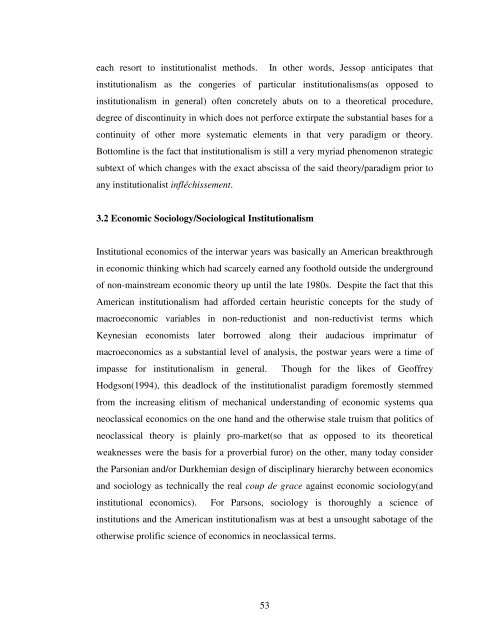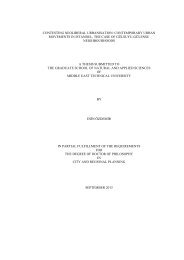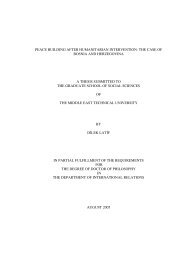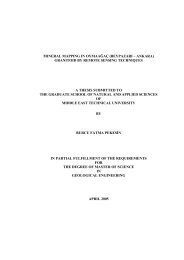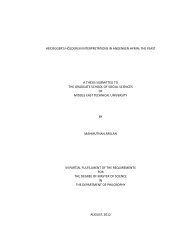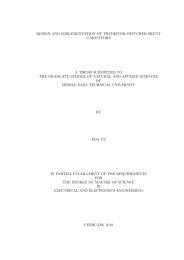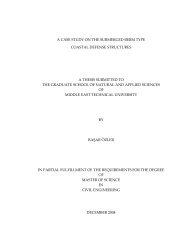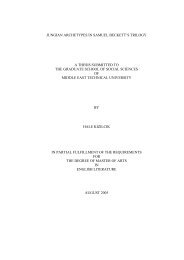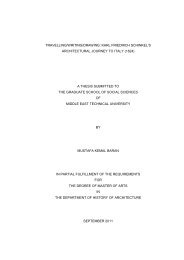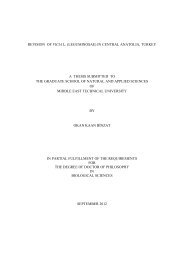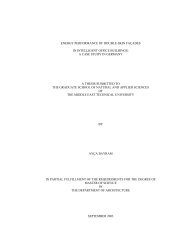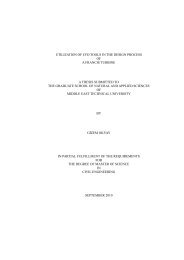View Original - Middle East Technical University
View Original - Middle East Technical University
View Original - Middle East Technical University
Create successful ePaper yourself
Turn your PDF publications into a flip-book with our unique Google optimized e-Paper software.
each resort to institutionalist methods. In other words, Jessop anticipates that<br />
institutionalism as the congeries of particular institutionalisms(as opposed to<br />
institutionalism in general) often concretely abuts on to a theoretical procedure,<br />
degree of discontinuity in which does not perforce extirpate the substantial bases for a<br />
continuity of other more systematic elements in that very paradigm or theory.<br />
Bottomline is the fact that institutionalism is still a very myriad phenomenon strategic<br />
subtext of which changes with the exact abscissa of the said theory/paradigm prior to<br />
any institutionalist infléchissement.<br />
3.2 Economic Sociology/Sociological Institutionalism<br />
Institutional economics of the interwar years was basically an American breakthrough<br />
in economic thinking which had scarcely earned any foothold outside the underground<br />
of non-mainstream economic theory up until the late 1980s. Despite the fact that this<br />
American institutionalism had afforded certain heuristic concepts for the study of<br />
macroeconomic variables in non-reductionist and non-reductivist terms which<br />
Keynesian economists later borrowed along their audacious imprimatur of<br />
macroeconomics as a substantial level of analysis, the postwar years were a time of<br />
impasse for institutionalism in general. Though for the likes of Geoffrey<br />
Hodgson(1994), this deadlock of the institutionalist paradigm foremostly stemmed<br />
from the increasing elitism of mechanical understanding of economic systems qua<br />
neoclassical economics on the one hand and the otherwise stale truism that politics of<br />
neoclassical theory is plainly pro-market(so that as opposed to its theoretical<br />
weaknesses were the basis for a proverbial furor) on the other, many today consider<br />
the Parsonian and/or Durkhemian design of disciplinary hierarchy between economics<br />
and sociology as technically the real coup de grace against economic sociology(and<br />
institutional economics). For Parsons, sociology is thoroughly a science of<br />
institutions and the American institutionalism was at best a unsought sabotage of the<br />
otherwise prolific science of economics in neoclassical terms.<br />
53


